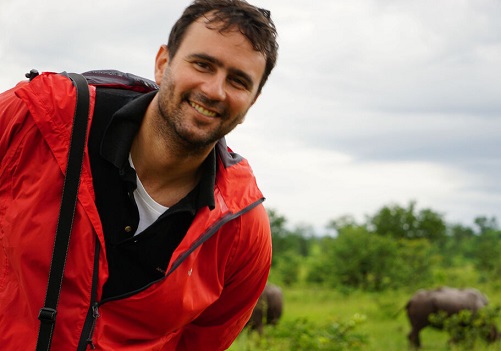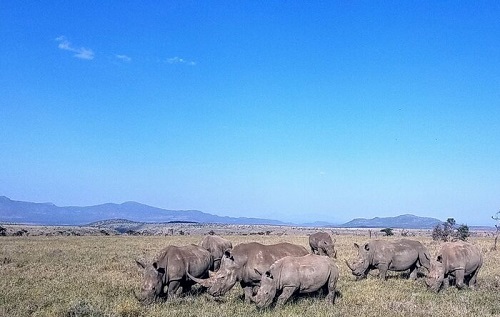Social entrepreneur and venture capitalist Ben Peterson is on a mission to make Africa’s tourism ecosystem the biggest and boldest in the world. As co-founder & CEO of Purple Elephant Ventures, Peterson’s recent role is a culmination of eighteen years investing in, founding, growing and managing companies and non-profits across Africa.
Peterson co-founded Journalists for Human Rights in 2002 (now Canada’s largest media development NGO) where he served as executive director until November 2011. He then turned his entrepreneurial attention to Newsana Incorporated (a news aggregation platform) before working as Senior Partner at AHL Venture Partners, one of Africa’s largest early stage investors. Thanks to his work, the Canadian-born Peterson was awarded Canada’s Meritorious Service Medal, one of Canada’s highest civilian honors.
SEE Change recently spoke with Peterson to discuss his purpose-filled career, the impact he’s made over the years, the lessons learned along the way, and the new venture keeping him busy today.
Looking back at your career (so far), what are the primary motivators that get you up in the morning (and that get you excited about a new venture)?
First and foremost, I have to believe – in my true heart of hearts – in the vision of the company or organization that I’m involved with. We only have so many years on this earth; my time is my most precious resource. So, is the time I’m spending on this endeavor worth it? Is it the best possible use of my time? Are we driving at something bigger and more important than us as individuals? These are the questions that I ask myself everyday.
What inspired your founding of Journalists for Human Rights? Does the mission remain as important today?
Nearly twenty years ago, for me at least, the need for more responsible local journalism around the world was apparent. The need has shifted to be sure – but is, in many ways, even more important today. The media’s role in the Trump years and in propping up false COVID-related narratives show us that reckless journalism has grave consequences. This is what we at JHR continue to fight against.
From where/when did you establish such a strong passion for Africa?
In September 2001, just days after 9/11, I moved to Accra, Ghana, having zero idea what to expect. Almost immediately, the place got into me – I fell in love with the people, the culture and how it all made me feel. I’ve been hooked ever since.
Rhinos in Kenya. All of the businesses they support will expand and improve Africa’s conservation lands
Tell us about Purple Elephant Ventures and the gap it’s trying to fill
Africa’s travel industry is key to the continent’s future as a driver of GDP and employment, but it also sets how the rest of the world sees and understands this part of the world. We’re building a number of start-ups to modernize Africa’s travel industry, making it more sustainable and more affordable. The more people understand this part of the world for what it actually is, rather than the stereotypes of it, the better.
What do you see as the greatest challenges that Africa is facing, particularly as it pertains to your mission of making “sustainable travel and tourism in Africa more accessible, more genuine, more affordable and just plain better”?
We’ve identified 14 main challenges for the African tourism ecosystem. These include health concerns for travelers, safety concerns for travelers, market diversification challenges, acquisition channel limitations, marketing limitations, poor physical infrastructure, etc. A major problem is stereotyping of the African continent – most western travelers have inaccurate ideas about Africa and what it’s like to experience life here. Each one of our 14 challenges can be broken down into multiple sub-challenges, each of which can (ideally) be addressed by building a business solution to the problem.
These issues are big and complicated, but let me be clear: to an entrepreneur, a challenge isn’t a problem; it’s an opportunity. And there are LOTS of opportunities here to improve the tourism ecosystem here, which I’m excited to take on now.
Can you offer any lessons learned from the many years you’ve focused on social impact?
I believe the best social enterprises come from the heart and the head simultaneously. Founders need to be 100 percent passionate about their work – but also deadly realistic about it too. All of my career regrets stem from being too strong in one of these directions or the other – either I was too dreamy or I forget to listen to my heart. Finding – and maintaining – the right balance is key (at least for me).



